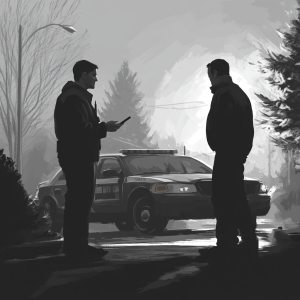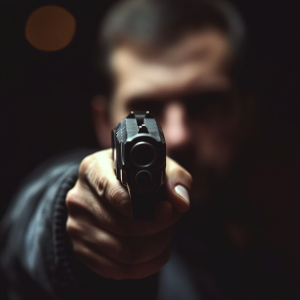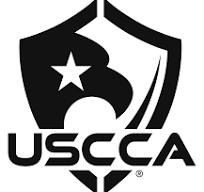
What to say after a self-defense incident
Carrying a firearm for self-defense comes with immense responsibility—not just in preparing for the moment you may need to use it, but also in dealing with the life-altering aftermath. In our litigious society, even a justified self-defense act can lead to criminal investigations, civil lawsuits, and financial devastation. In fact, it’s 99% likely to happen. Are you prepared financially for what that could mean to you and yours? That’s why the United States Concealed Carry Association (USCCA) is more than a membership—it’s your lifeline when things go wrong.
Self-Defense: It’s Only the Beginning
Many responsible gun owners focus on mental and physical preparedness for a self-defense scenario but fail to consider what comes next. Here’s the hard truth: if you have to draw your firearm, you’ve already lost the ultimate battle of staying safe. The aftermath—a whirlwind of legal challenges—can be overwhelming both emotionally and financially.
The USCCA equips you to handle this with confidence, offering criminal and civil liability protection, cutting-edge training, and immediate access to legal experts.
Why the USCCA Stands Out
Membership with the USCCA isn’t just insurance; it’s a complete support system for responsible gun owners. Here’s what makes it invaluable:
1. Legal and Financial Protection
For as little as $29 a month, USCCA membership covers you from the moment you sign up. It includes the most comprehensive liability insurance available, protecting you both criminally and civilly. You’ll have access to a nationwide network of top-tier attorneys and won’t face the financial burden of legal fees, court costs, or settlements alone.
2. Immediate 24/7 Response
After a self-defense incident, your first call should be to 9-1-1. But your second call needs to be to the USCCA Critical Response Team (CRT). They’re available 24/7 to dispatch an attorney immediately, ensuring you have expert guidance from the start.
3. Award-Winning Education
USCCA offers hundreds of hours of expert training videos and resources. These go beyond preparing you to act—they teach you how to avoid ever needing to draw your firearm.
4. Free Nationwide Classes
With over 1,500 classes offered nationwide each month, you can attend any USCCA training for free. Their highly trained instructors cover topics like situational awareness, de-escalation, and legal readiness.
5. Industry-Leading Magazine
Members receive Concealed Carry Magazine, which was recently named the best magazine of 2024. This publication is packed with expert advice, inspiring stories, gear reviews, and practical strategies for responsible gun ownership.
What to Do After a Self-Defense Incident

Pulling the trigger is just the beginning of your trauma
The moments after a self-defense incident are critical. A misstep during your 9-1-1 call or when speaking with police could jeopardize your freedom. Here are key steps, informed by the USCCA:
1. Be the First to Call 9-1-1
Always report the incident first. This ensures your account is on record before anyone else can distort the story. (Even if you think the incident is benign, you should report it to 9-1-1. You never know what the defeated person’s ego is going to conjure up as they sit and stew against you.)
Clearly identify yourself as the victim: “I was attacked, feared for my life, and had to defend myself. Please send both police and an ambulance to this location.”
Share details about the attacker: where they are, if they’re armed, and if they fled the scene.
2. Follow Police Instructions
When police arrive, comply fully with their instructions. Your safety depends on a calm interaction. However, do not make hard statements without your attorney present.
3. Point Out Evidence
Make officers aware of critical evidence, such as the attacker’s weapon or any witnesses who saw the event or the location of cameras.
4. Don’t Make Detailed Statements
Say only what’s on your USCCA membership card: “I’ll cooperate fully but need my attorney present before making further statements.”
5. Call the USCCA Hotline
Your next call after 9-1-1 should be to the USCCA hotline. They’ll guide you through the next steps and send an attorney to your location.
Why the 9-1-1 Call Matters
Every 9-1-1 call is recorded the moment the line starts ringing, and those recordings can be used in court. When you call, you’re not just speaking to the dispatcher—you’re speaking to the police, the prosecutor, the jury, and even the media. Saying the wrong thing, even under stress, can hurt your case.
USCCA’s training emphasizes this:
• Be concise.
• Identify yourself as the victim.
• Avoid unnecessary details until your attorney is present.

Is your pepperspray expired?
Real-Life Stories of Why USCCA Membership Matters
The need for USCCA membership becomes glaringly clear in these real-life examples shared during a USCCA class:
• The Pepper Spray Incident
A woman used pepper spray to defend herself. Unfortunately, the spray was expired, and the attacker sued her in civil court—and won. Without USCCA membership, she lacked proper representation.
• The Child Support Case
A man defended himself against a violent attacker who was out on bail and shot the criminal in self-defense. Though no criminal charges were filed against the victim, the attacker’s mother sued in civil court—and won. The victim was ordered to pay child support for the criminal’s children. Without USCCA protection, he faced financial ruin.
Here’s an example from one of the many heart wrenching stories shared on the USCCA website from one of its members.
• Brian’s Ordeal
In 2019, Brian, a North Carolina Army veteran, found himself in a nightmare scenario. He was forced to defend himself against his ex-wife’s violent ex-boyfriend, who attacked him. Acting in self-defense, Brian shot the attacker, only to be arrested and charged with first-degree murder.
Brian spent 110 days in jail before being released on bond, enduring months of uncertainty and fear as he fought to prove his innocence. His USCCA-appointed attorney, Kevin Marcilliat, worked tirelessly to uncover critical inconsistencies in police reports and gather exculpatory evidence. Witness testimonies and forensic analysis of the distance between Brian and his attacker were instrumental in dismantling the prosecution’s case.
After 144 grueling days, the district attorney dismissed the charges, and Brian was finally free. He credits his survival—not just physically but legally and emotionally—to his faith and his USCCA membership.
“Without the USCCA, I’d probably still be in jail,” Brian reflects. His story is a sobering reminder of how quickly a self-defense scenario can spiral into a legal battle. Thanks to the USCCA, Brian had the resources, expertise, and support to navigate this life-altering event.
This ordeal highlights why preparation must go beyond the act of self-defense. It’s not just about saving your life in the moment—it’s about protecting your freedom and future in the aftermath.
In a recent interview with the Director of Education and Training of USCCA, Rob Chadwick, he points out that based on 80 years of statistics kept by the FBI, civilians and even law enforcement are likely to miss 70-80% of their shots even at a close proximity range of 7-10 feet. If you miss your shot, that means that you’re responsible for where the other ones land. That’s a whole other component of liability that most firearm holders don’t consider. All the more reason to consider the USCCA membership.
Membership: Peace of Mind for $29 a Month

USCCA Membership makes a difference
For less than a dollar a day, USCCA membership provides:
• Legal and financial protection from the moment you sign up.
• Hundreds of hours of training to keep you prepared and informed.
• Free nationwide classes.
• Immediate attorney access through the Critical Response Team.
• The award-winning Concealed Carry Magazine.
Carrying a firearm is a tremendous responsibility, and being prepared means more than having the right tools—it means having the right plan. After a great deal of research, I believe that the USCCA is the most comprehensive self-defense organization available, ensuring you’re ready for the moment, the aftermath, and beyond.
When you join the USCCA, you’re not just protecting yourself—you’re safeguarding your family, finances, and future. That’s the kind of preparation every responsible gun owner deserves.

